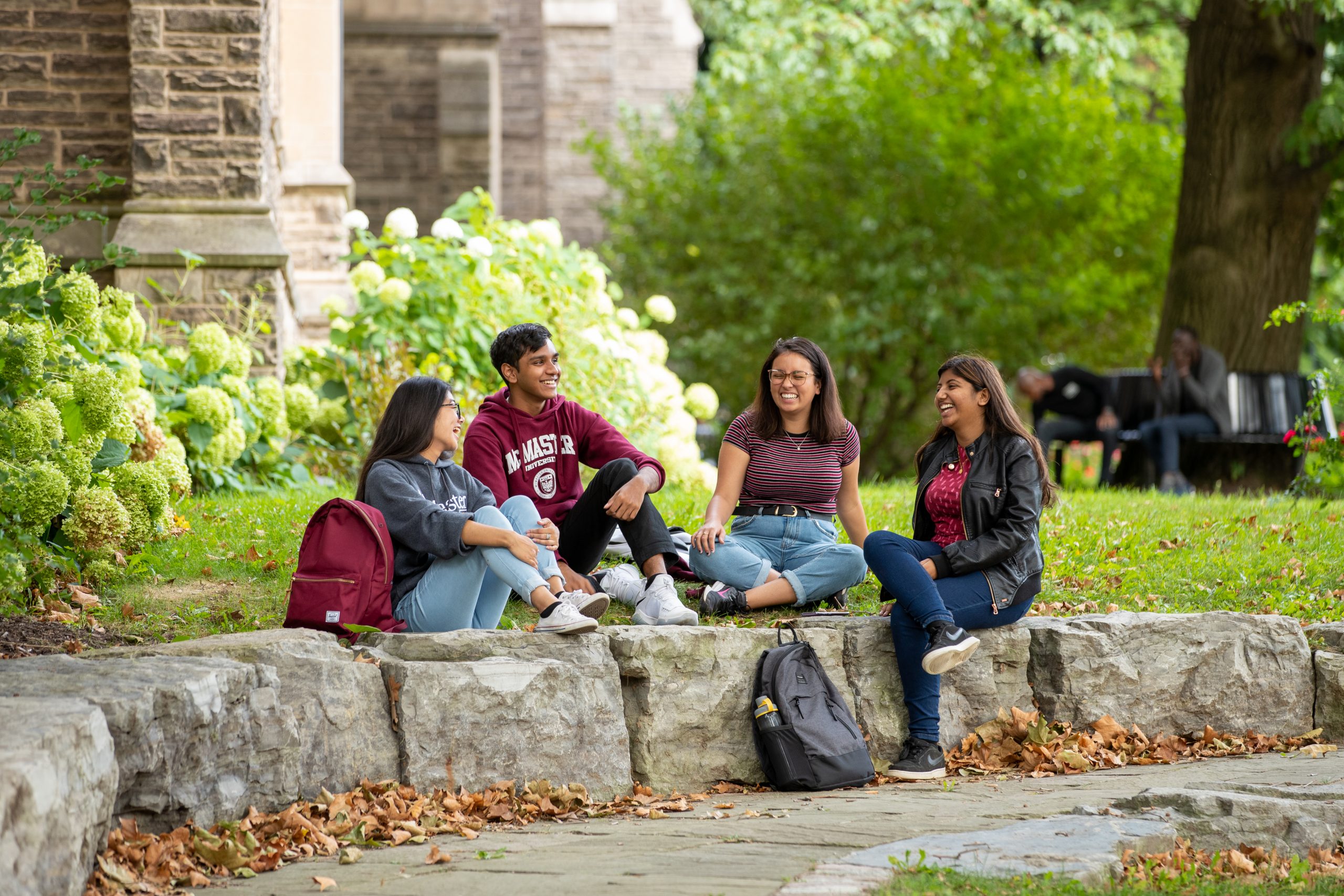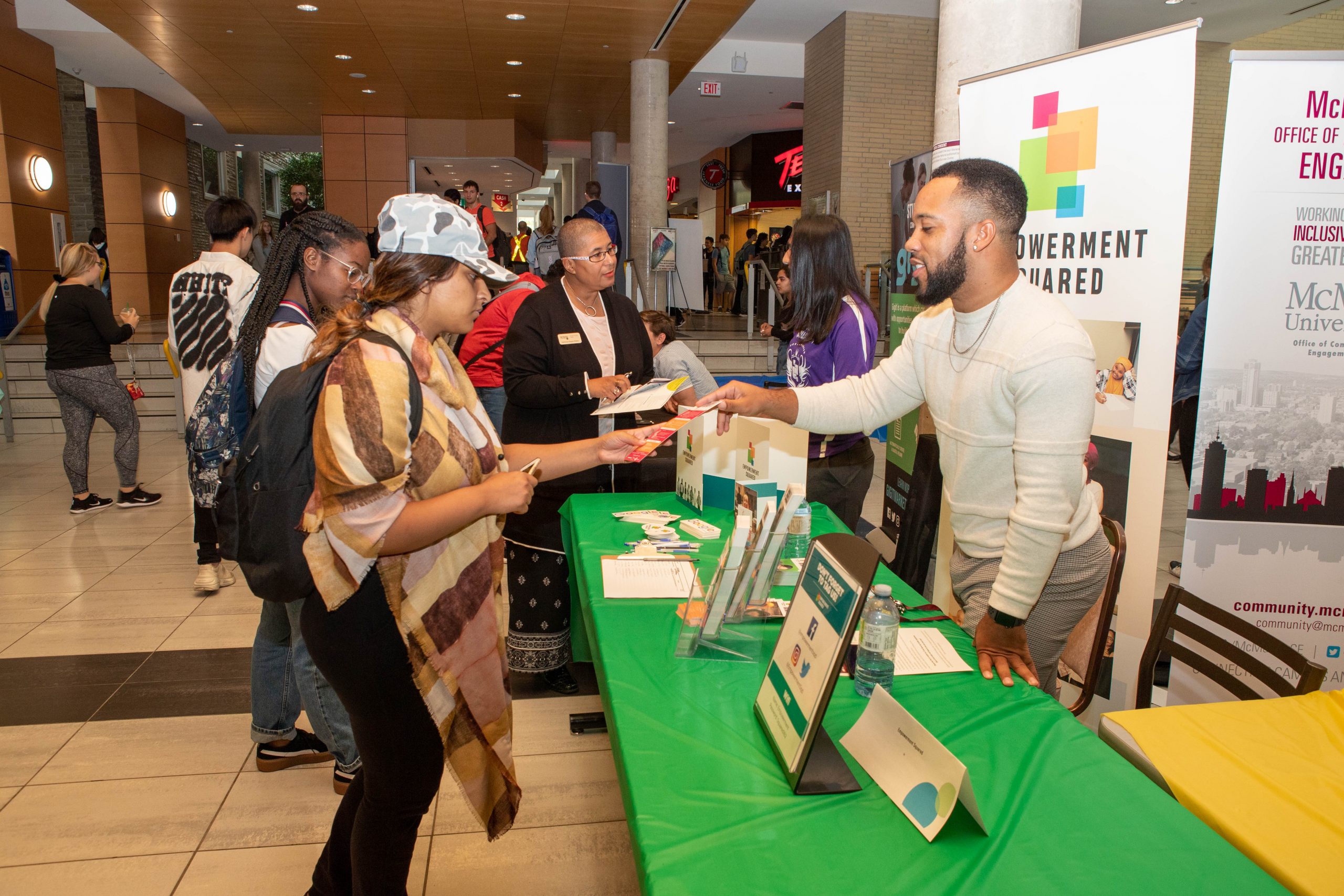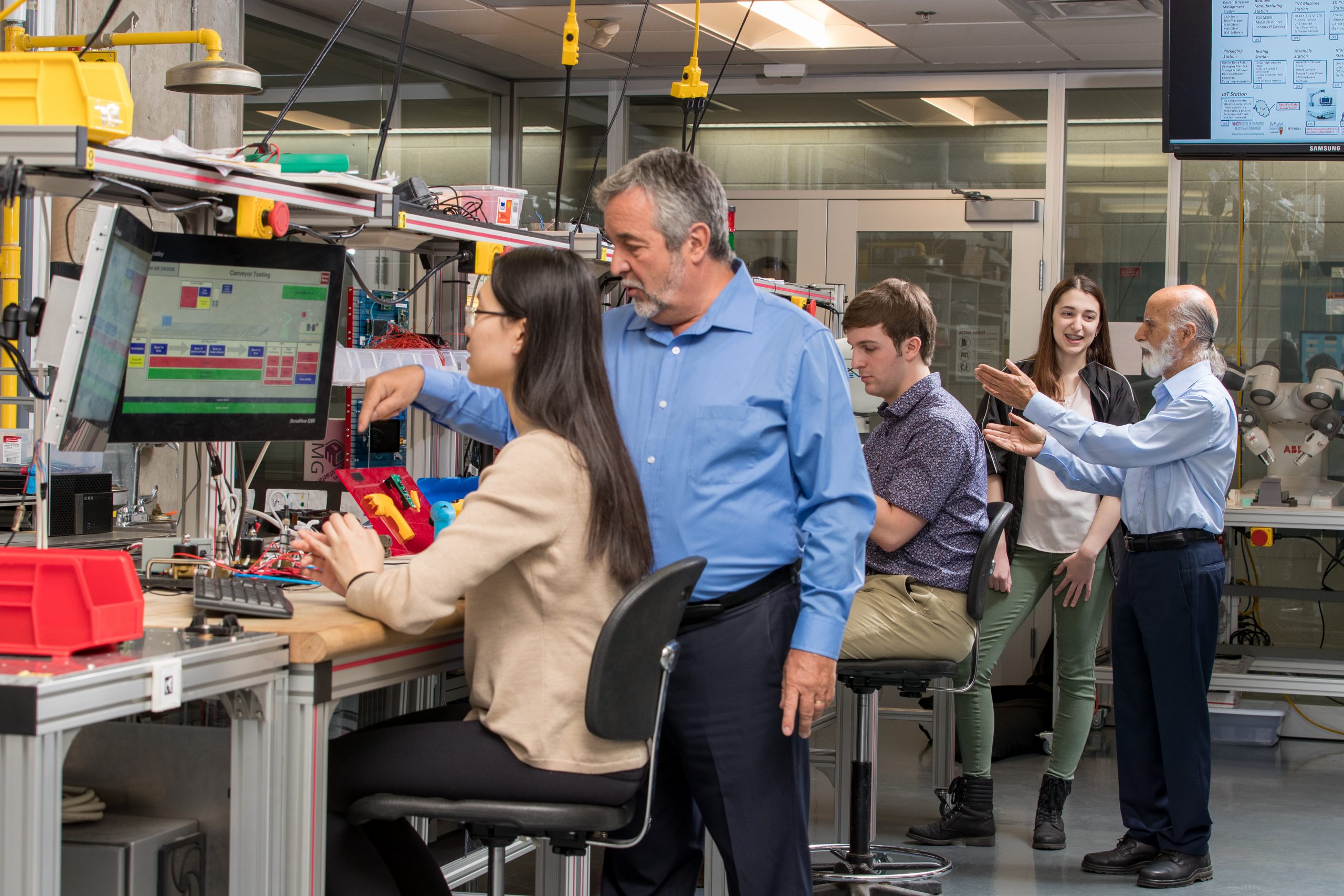Chapter 1: Defining Community, Community Engagement & Experiential Education
What is a Community?
Universities exist within community contexts, as they are surrounded by and made up of communities rich in knowledge, skills and transformative potential. Community is often described in simple, one-dimensional terms, but is typically complex.
Communities are groups of people who share some commonality (e.g., geography, interest, identity or problem) but are heterogeneous. For example, a neighbourhood shares common geography and some common experiences but there will be differences among community members in terms of socioeconomic status, family type, race, or housing tenure. Those differences will impact how people experience their neighbourhood and how they take up community membership.

They are described as the intermediary layer between the personal (e.g., family, friends and self) and the structural (e.g., organizations, institutions, policies and structural forces). In that intermediary layer, there are sensitive ecosystems: for example, if something terrible happens to a local family, it can mobilize the community to act. Or if the government passes a new housing policy that impacts a significant number of people in a given community, it can change the makeup or the experience of many members.
We are all embedded in multiple overlapping communities. For example, McMaster students are all part of the broader McMaster University Community as well as the Hamilton Community. However, each of us is also part of a myriad of other communities including the faculties we study in, the clubs we participate in and many more.
Please type the communities you belong to into the open text field. When you are finished, click on the icon in the top left corner of this activity (i.e., the icon with three horizontal lines to the left of “What Communities Do You Belong To?”) and select “Download My Answers” to submit and download a copy of your responses.
What is Community Engagement?
At its most basic, community engagement is the intentional connection between communities and institutions to foster learning and change.
The official McMaster definition of community engagement is in the box below. Notice that this definition refers to the collaboration between the university and community partners. This collaboration might draw in community members or organizations working with university administrators, staff, instructors, or students. The students could be in classes, clubs, and co-curricular groups. This definition begins with “valuing the expert knowledge and passion of the community.” This is crucial. Members of communities are informed, knowledgeable experts in their own lives, and, thus, community engagements need to be based on reciprocal, respectful relationships where there is a deep recognition of the knowledge and skills that everyone brings to the task. If you are not at McMaster, you might want to look up the definition of community engagement at your institution and compare it to this one.
McMaster University’s definition of Community Engagement is:
…valuing the expert knowledge and passion that members of the community (both local and global) have about their communities and issues affecting them; fostering ongoing collaboration between University and community partners on how to better understand and consider the issues identified as priorities by local and global communities; and perform research, teaching and service with community members and partners for the public good (OCE, CE Education Toolkit, 2018).
The concept seems simple but communities and the way we engage with them are complex, requiring principled and intentional action to be effective and ethical.

Why do we do Community Engagement?
We recognize that there are many complex and interconnected issues impacting the world right now such as poverty, climate change, disease outbreaks, racism and polarizing political discourse. We also recognize that the capacity for creativity and hope lives in people and the way they interact with each other to stave off these serious problems.
Community engagement helps to transform the world
The complex and interconnected problems at this moment require collective responses. Individuals can influence change but working with groups of people who share common troubles and interests can harness new perspectives, ways of working and the energy to create change.
Community engagement helps to transform us
As lifelong learners, we gain so much from relating to and interacting with different people who have different perspectives on real-world and consequential problems and issues. Taking our learning out of textbooks and classrooms teaches us about the complexity of the issues we engage with, the resiliency of people and communities and our own strengths and weaknesses.
What is Experiential Education?

Experiential education advances program and/or course-based learning outcomes through the application of theory and academic content to authentic experiences, either within the classroom, the community, or the workplace. Educators purposefully engage with learners in focused reflection in order to deepen their knowledge, develop skills, and clarify values. Experiential learning occurs as a result of student reflection including critical analysis and the synthesis of experience and academic content.
It’s important to note that while community-engaged learning is a type of experiential learning, not all experiential learning involves community engagement. In the next section of this module, we further compare and contrast community-engaged learning and experiential learning.

